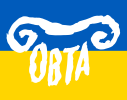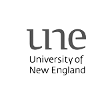October 28, 2017 - Training Seminar for Writers of Survey Entries at the Ecole Normal Supérieure, University of Yaoundé 1
Report by Standley Sakwe Itoe, email: standeman48@yahoo.com, edited and revised by Prof. Daniel A. Nkemleke
Members of the Cameroon/Africa research team for the project Our Mythical Childhood... The Reception of Classical Antiquity in Children’s and Young Adults’ Culture in Response to Regional and Global Challenges held an intensive one-day training seminar at the Ecole Normale Supérieure of the University of Yaoundé 1 on October 28, 2017. The goal of the seminar was to familiarize the new team of writers of the Survey entries with the Project’s requirements and how they should approach the task of writing entries for the database in line with OMC ethical guidelines. The discussion opened with an overview of the Project by Prof. Daniel A. Nkemleke, who emphasized the international scope of the Project and highlighted its objectives. He briefed the participants on work that has been done in the past one year, and expressed the hope that the experiences of last year help improve activities for this year. He moved on to talk about the benefit of introducing other colleagues with whom we work in our different institutions, to the Project as a strategy to identify potential collaborators.
What is a Survey entry?
Templates for writing the Survey entries (myth, literary, video film) were studied. Copyright questions and related issues were clarified. The group then moved on to read some of the best entries written by colleagues from other institutions, comparing style and taking note of text specificities. Considering the fact that many of the participants have not written Survey entries of the type envisaged in this Project before, it was decided that after their first 2–3 entries would have been written, another brief meeting will be held to discuss overall performance and harmonize style to the extent possible.
Ethical guidelines for writing Survey entries
The ethical guidelines for writing entries were studied and questions from participants addressed. The most important aspect here was the focus on originality. Participants were instructed that each entry written must represent the work of the writer, and any foreign material will have to be duly acknowledged, as in all standard research and publication. All the participants pledged their commitment to uphold the integrity of what they will contribute and to live up to the expectations as indicated in the guidelines. The participants were informed that there will be an internal peer-review process and an external second reviewer. A successful entry would therefore be one that must have gone through these processes.
Distinguishing myths, legends, and folktales
Prof. Divine Che Neba, an expert in African literature and orality, gave a talk on the differences between a myth, a legend, and a folktale. These distinctions will help each writer to discriminate what a myth is and what it is not. We maintained that myth is an important category as far as Cameroon/Africa is concerned and priority for this second year of the Project is on the identification and the collection of myths from different parts of the country.
Participant consent form
Consent participant forms were multiplied and distributed to participants as an accompanying indispensable document for any field trip to collect myths. Given the low literacy level of some people in rural areas where some of these myths will be collected, participants were asked to approach the matter of obtaining narrators’ signature with tact and wisdom. Since in some cases asking for a formal signature may create an unnecessary fear on the part of the narrator, the latest directive (from ERC) on the matter, namely that a verbal recorded consent may be enough, was discussed. But it was also made clear that such a recording should not be done surreptitiously.
Conclusion
The discussions were as intersecting as they were exciting. The participants were eager to explore possibilities to start writing their first Survey entries. Some pledged to use their workplace colleagues to identify potential rural communities where myths may be collected. This exercise may even begin from the people in urban areas, since almost every urban dweller in Cameroon comes from a village. Some pledged to undertake field trips with Prof. Divine Neba to distant villages in due time.








